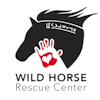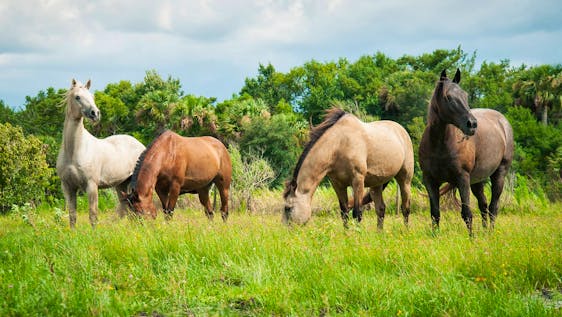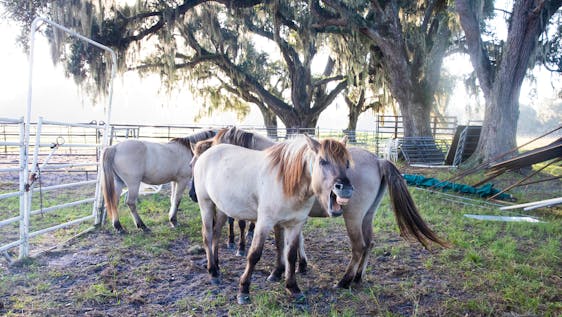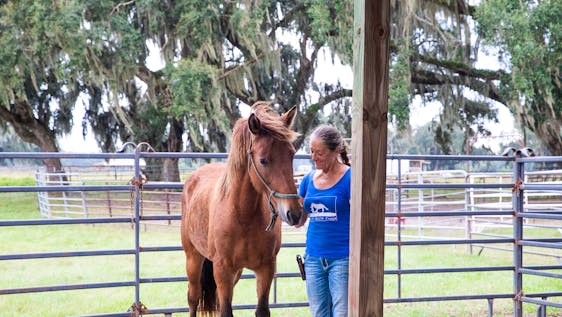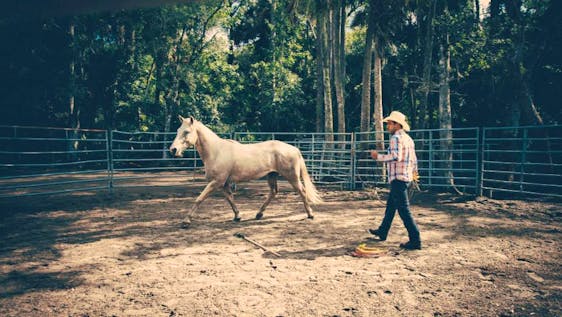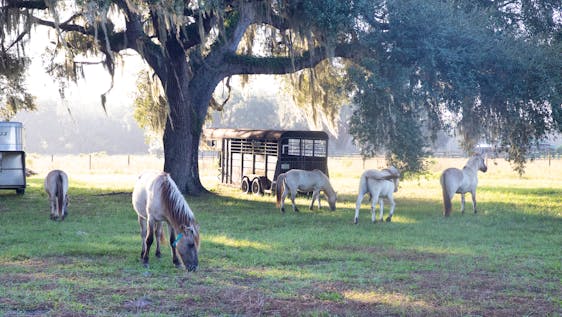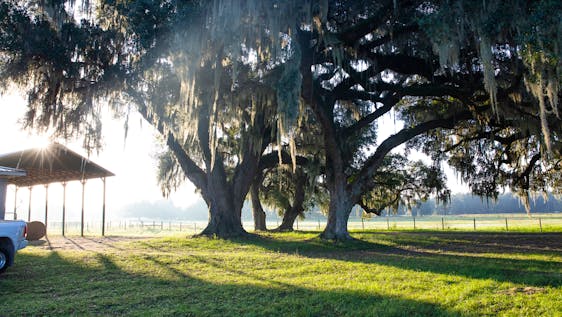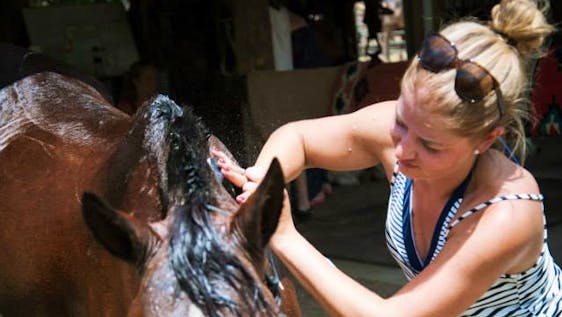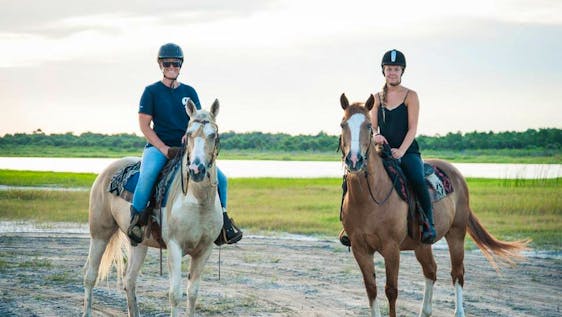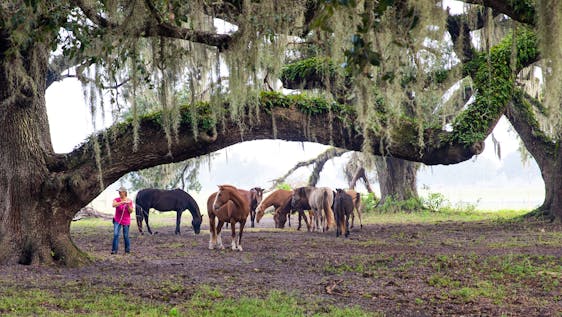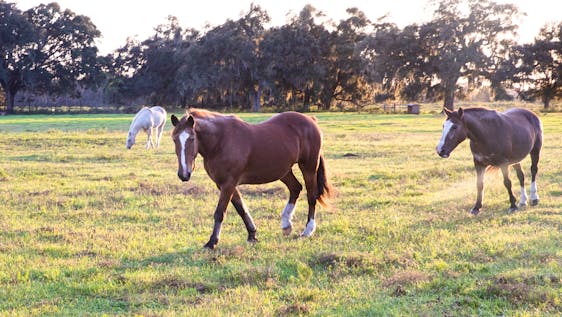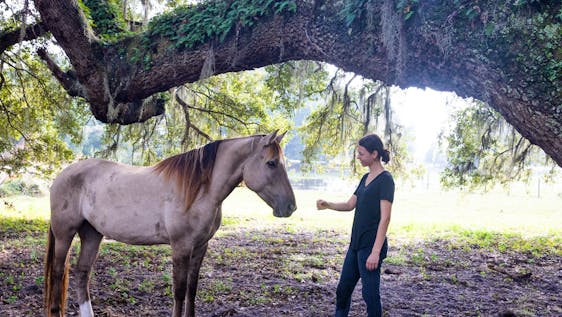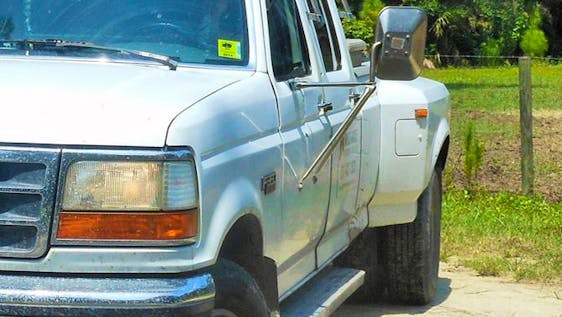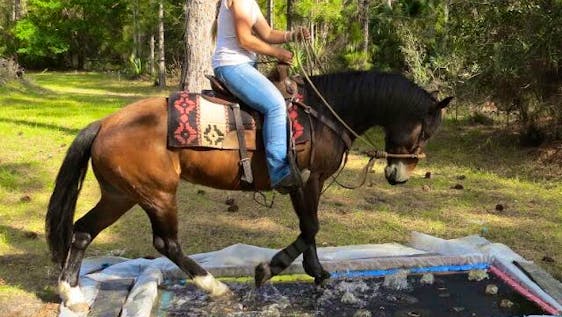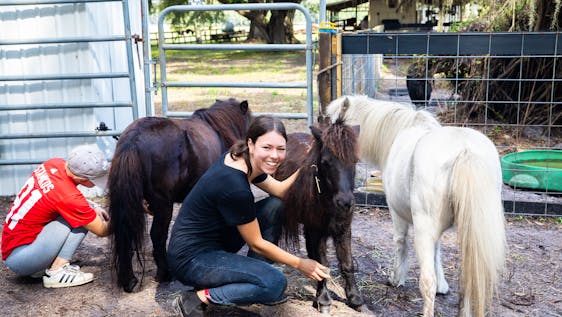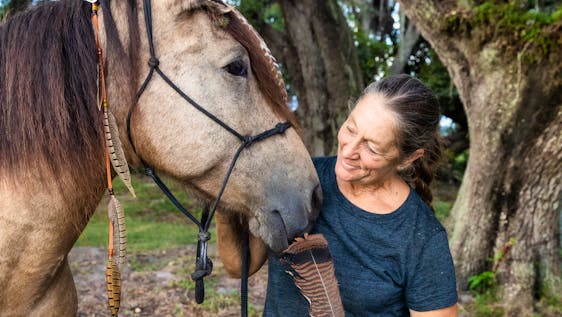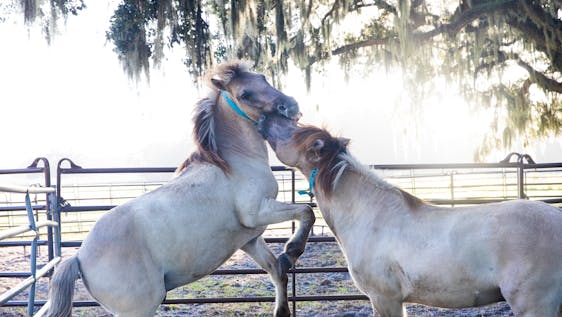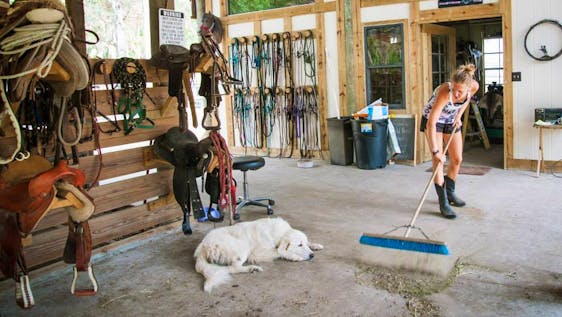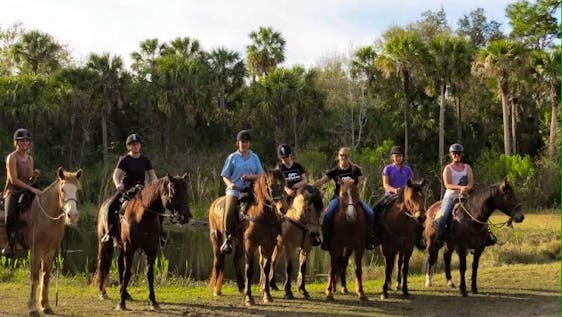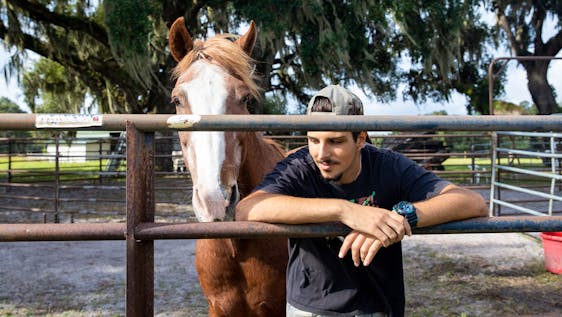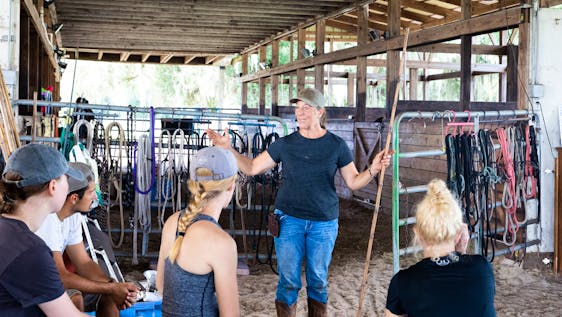About the Project
Founded by Diane Delano in 2000, WHRC receive mustangs who have been taken from the wild and from there, ended up in neglectful or abusive situations. WHRC rehabilitates these wild horses so they have a chance at getting adopted in to good homes and have a dignified life after being taken from the wild. Diane Delano has been an ardent horse lover all her life. She found her greatest passion in helping America’s wild horses, the Mustang. Diane’s desire to make a difference in the lives of these beautiful and intelligent wild spirits led her to create the Wild Horse Rescue Center in Mims, Florida. Another important part of the team is Mary Alice "Malice" Smith. Malice Smith has been a vital part of WHRC since 2004. With veterinary technician and wildlife management experience, Malice’s skills, experience, and dedication (and her sense of humor) make her a vital part of WHRC. A strong advocate for the preservation of Mustangs in the wild, we feel fortunate to have her on our team.
In June 2014, Wild Horse Rescue Center relocated to a 40 acre property. The new location for the Center is in beautiful Central Florida with a barn that has a tack room and feed room. There is a big house and pool for our International Volunteers from all over the world to use. We are continually working on clearing the property and building more pens and stalls for our wild and abused mustangs and burros.
The Problem
Mustangs were introduced to the US as domestic horses in the early 1500’s by the Spaniards. These horses later formed a large wild population and came to play a critical role in the building of America. The United States is virtually built on their backs. Now, when they are not needed for labor and transport anymore, they are sadly being mistreated and exploited at the hands of man. In the early 1900’s, the wild mustang population was estimated to be over 2 million. Today, there are only 40,000 left in the wild and about as many in captivity in need of rescue. Caring for a wild horse is drastically different than caring for a tame one, sadly, this is often leads to mistreatment and neglect of wild Mustangs in captivity.
Verified by the Global Federation of Animal Sanctuaries
The Global Federation of Animal Sanctuaries (GFAS), the only globally recognized organization providing standards for identifying legitimate animal sanctuaries, awarded Verified status to Wild Horse Rescue Center as of April 15, 2013.
Verification means that Wild Horse Rescue Center meets the criteria of a true equine sanctuary/rescue and is providing humane and responsible care of the animals. To be awarded Verified status, an organization must meet GFAS’s rigorous and peer-reviewed animal care standards which are confirmed by a site visit and they must also adhere to a demanding set of ethical and operational principles.
